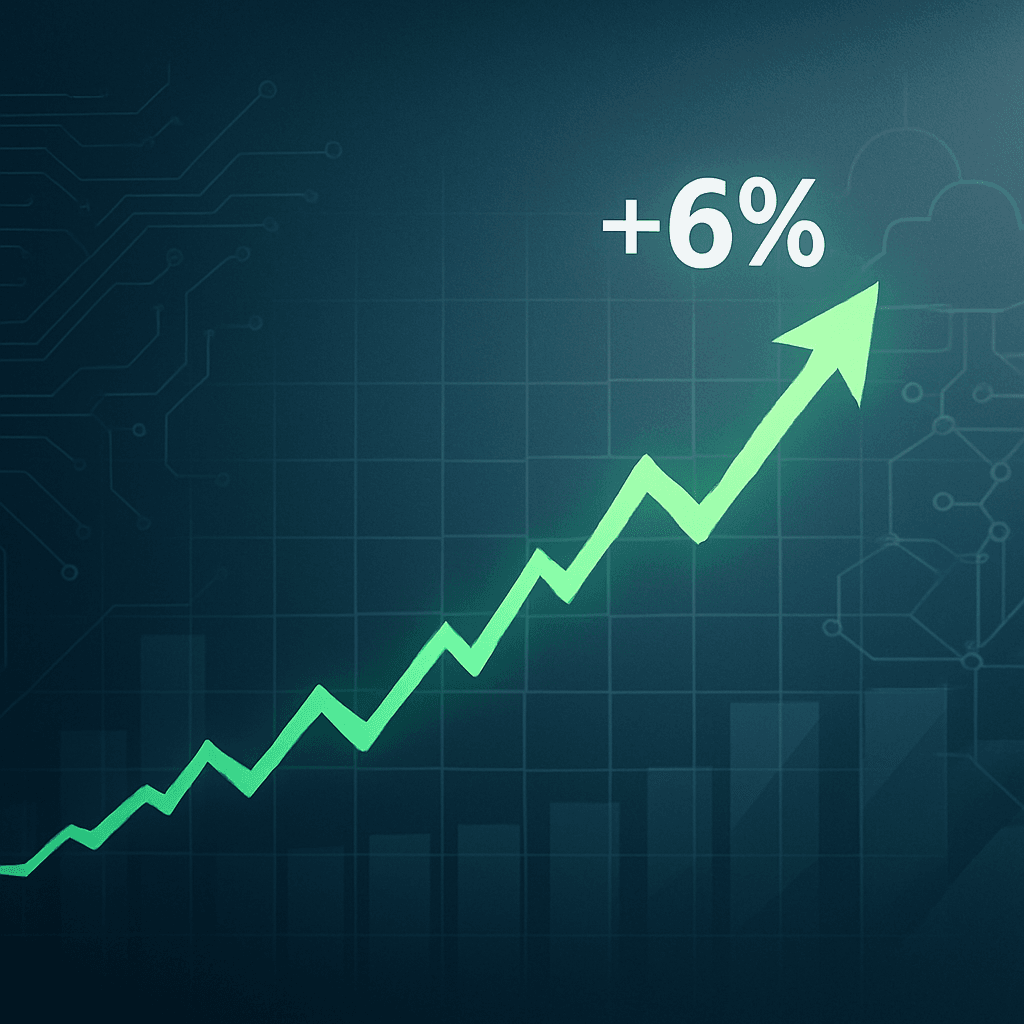Alibaba's stock just hit a three-year high after CEO Eddie Wu announced the company will pour even more money into AI on top of its already massive $53 billion commitment. The Chinese tech giant's shares jumped over 6% in Hong Kong trading, bringing year-to-date gains above 107% as investors bet big on the company's artificial intelligence strategy.
The market's betting big on Alibaba's AI future, and Wednesday's 6% stock surge to three-year highs shows just how hungry investors are for the company's expanded artificial intelligence vision. CEO Eddie Wu didn't just talk about maintaining the company's massive AI spending - he promised to increase it beyond the already eye-watering $53 billion commitment announced earlier this year. Speaking at Alibaba Cloud's annual flagship technology conference, Wu painted a picture of a company preparing for what he called the "artificial superintelligence era." The term refers to AI that would theoretically surpass human brain power - a benchmark that's become the holy grail for major AI companies worldwide. "We are vigorously advancing a three-year, 380 billion yuan AI infrastructure initiative with plans to sustain and further increase our investment according to our strategic vision," Wu told attendees, according to CNBC's reporting. The timing couldn't be better for Alibaba. While OpenAI, Google, and Microsoft dominate headlines in the West, the Chinese tech giant is quietly building what Wu describes as a "full-stack AI service provider." That means everything from the data centers that train AI models to the cloud services that deploy them - a vertical integration play that could give Alibaba serious competitive advantages. The company didn't just talk strategy on Wednesday. It officially unveiled Qwen3-Max, the latest version of its large language models that compete directly with GPT-4 and other Western AI systems. The launch comes with a broader suite of AI product updates designed to position Alibaba Cloud as the go-to platform for businesses looking to deploy AI at scale. What's striking about Wu's announcement is the sheer scale of global AI investment he's projecting. "The cumulative investment in global AI in the next five years will exceed $4 trillion, and this is the largest investment in computing power and research and development in history," he said. If he's right, that makes the AI buildout bigger than any infrastructure project in human history. For , the stock surge represents more than just investor enthusiasm - it's validation of a strategic pivot that began during the company's regulatory troubles in 2021. Since then, the company has methodically repositioned itself around cloud computing and AI, betting that these technologies would drive its next phase of growth. The 107% year-to-date gain tells that story in numbers. While and other Western tech giants have seen their AI investments questioned by investors worried about returns, shareholders seem convinced the company's approach will pay off. Part of that confidence likely stems from the company's integrated approach - unlike pure-play AI startups burning cash on computing resources, controls its entire stack. The artificial superintelligence angle adds another layer of intrigue. While companies like have talked about AGI (artificial general intelligence), Wu's focus on superintelligence suggests believes the transition from today's AI to truly human-surpassing systems could happen faster than many expect.












